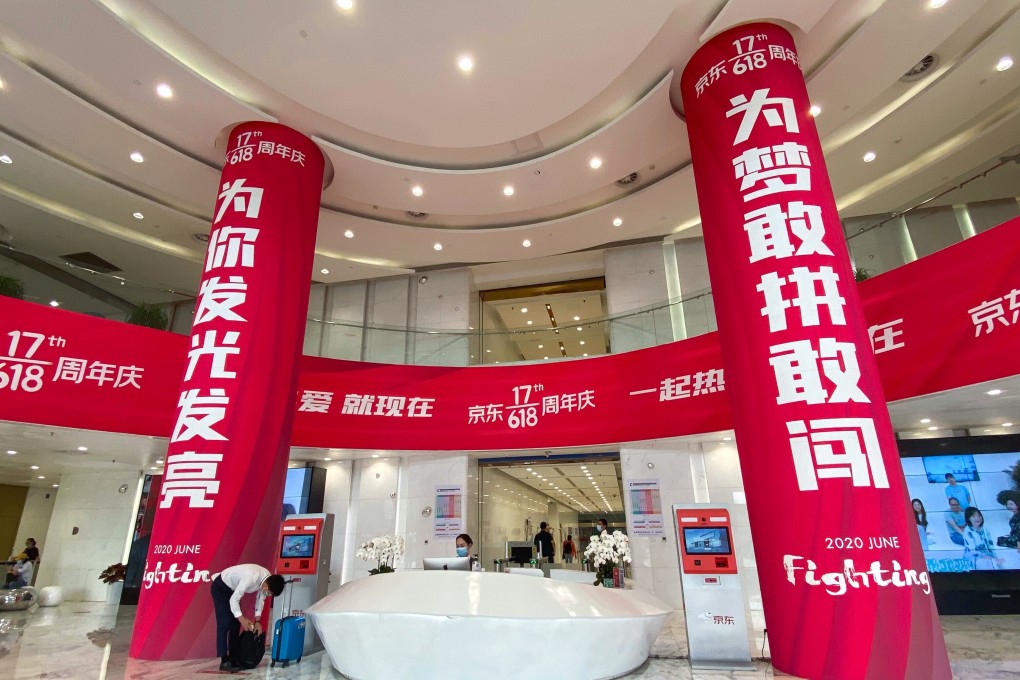Inside China Tech: Online shopping alive and kicking in China
- JD.com, the country’s second-largest e-commerce platform, said transaction volume rose 33.6 per cent from last year to US$38 billion
- In 2012, two years before China Mobile launched 4G services on the mainland, various Chinese entities joined an international initiative to research and develop 5G

Hello from the SCMP technology desk in Hong Kong. Here is a wrap up of our leading stories from the past week.
Midyear sales boom
Chinese e-commerce giants JD.com and Alibaba saw a boom in sales during the first big shopping festival since the Covid-19 pandemic hit the country, indicating that online shopping is alive and kicking despite a wider slowdown in the economy.
JD.com, the country’s second-largest e-commerce platform, said transaction volume rose 33.6 per cent from last year to 269 billion yuan (US$38 billion) during the 618 midyear shopping festival which ended Thursday.
Transactions on Alibaba’s e-commerce platform Tmall marketplace were also up 100 per cent year-on-year during the first hour of business on Thursday, according to China’s biggest e-commerce player.
“The FMCG (fast-moving consumer goods) category and fresh produce have experienced continuous growth from the beginning of the pandemic until today,” Xu Lei, chief executive of JD Retail, said in Beijing on Thursday.